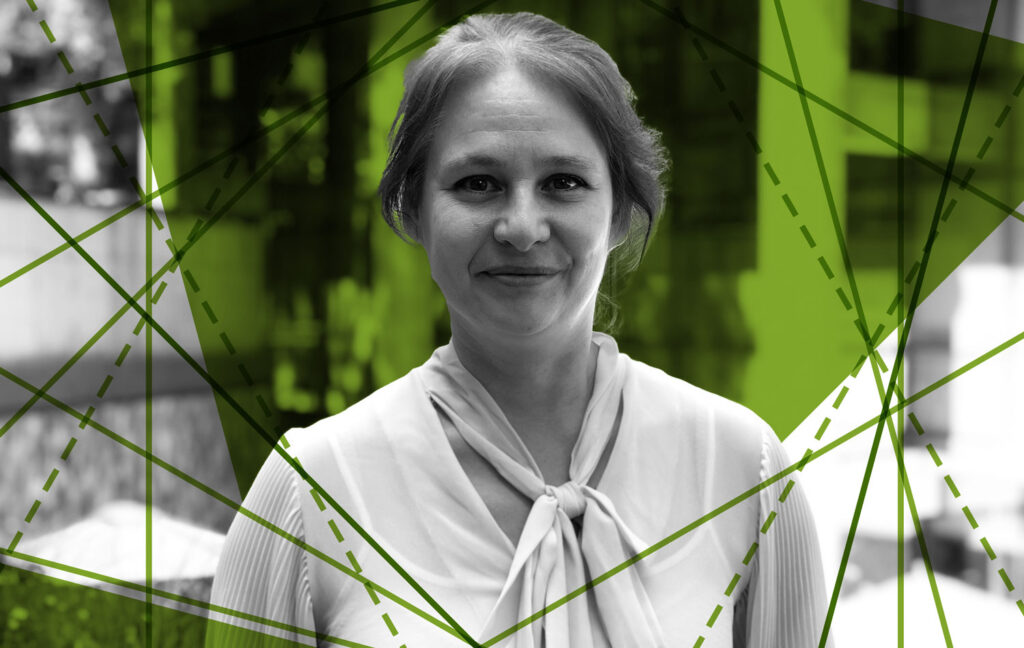6 August 2024
Was it difficult to move after your PhD in Chile to the Curie Institute in Paris?
It was challenging for two reasons – not because of our scientific knowledge in Chile which I’m really proud of – but because I switched gears in my field of research. I was really into cell biology and switched to doing my postdoc in immunology – something I said I would never do because I thought it was so complicated! I had to learn quickly to speak a new language. I was learning to speak French and learning to speak immunology.
Was it a deliberate choice to challenge yourself?
What happens in Chile frequently is that people do their undergraduate thesis and then the PhD and postdoc in the same lab – focusing almost on one protein. For me, I like being challenged, and looking at different cells, fields, topics really helps me to develop into a scientist that asks the more important questions.
What are you researching now?
I look at immune cells a little differently than a classical immunologist. I look inside the cells at the mechanisms. That’s what motivates me and my students. I want to understand how B lymphocytes become activated initially. When they receive the first signal from an antigen presenting cell, they establish an immunological synapse. If they don’t do this efficiently, if the cell biology doesn’t work at this point, you don’t have an efficient immune response.
The flipside is if it works too well, you get types of autoimmunity diseases. If you understand how to fine tune the initial activation, you can think of modulating responses. If you want to improve vaccine, how do you present an antigen to these cells, or if you want to develop cancer immunotherapy, for example.
Is there a specific purpose or do you simply want to know how this works?
Sometimes it’s just where the curiosity takes you. Intrinsically, I’m wired just to understand basic science. That’s my motivation. I really want to know how these cells work and how they’re so clever in becoming activated, and interpreting all of these extracellular cues and developing different responses. In the end, of course, if this information is available to finetune immunotherapy that’s great but it’s not my focus for now.
How would you describe the life sciences in Chile?
Being in Chile has its ups and downs. We’re doing things that ten years ago were impossible. On the other hand, when I go to EMBO meetings I see people with higher technology and think we’re growing further apart in the technological reach. That troubles me a bit, but we still have this global interaction. That’s why global networks are so important because you talk to people who are pushing the limits and then you can collaborate and get to know all the new things that are happening.
On the good side of being in Chile, since we don’t have this massive access to everything you want in the moment, you get to think about things a little bit more. You really ask the questions and take the time to figure out what’s the smartest and most efficient way to answer this question. It really trains you as a PI. It challenges you and it challenges your students. You have to be more inventive.
What was it like moving back to Chile?
Mixed feelings. You usually come back mostly for personal reasons, because family is involved. That’s one of the main things I would say, especially for women.
Once you’re here, you realize you don’t have the same advantages you have in Europe, US or more developed countries – the first three years are very frustrating because you come from a postdoc position in my case from the Curie Institute where I would just go down and access all the microscopes or see people with Nobel Prizes giving lectures.
But then you realize that science is all about the questions that you want to ask. It’s about getting a group of people discussing how to solve interesting questions. Then you start interacting with students, you get your group and it starts growing and you feel like ‘hey, there’s a scientific vibe here’. The questions we’re asking are the same questions people at NIH are asking, and they have similar approaches. It’s just that they have more money to do so.
The EMBO global network really makes a difference because you’re part of a larger community and it doesn’t matter so much where you are geographically, you can still really connect. We speak the same language: science!
What advice do you give people in Chile considering a career in the life sciences?
I think it’s great, especially for women. If there’s one moment in time where it’s good to be a female scientist, it’s now. It’s good for women in science and good to do science because more and more scientists are respected worldwide. We can really contribute to making a difference in health sciences – vaccines are a clear example. I tell students it’s a great place to work.
I think the main barrier for students to go into graduate programmes is because they’re scared they’re not good enough. I try to overcome this and say ‘I thought I wasn’t good enough at the beginning and look where I am!’ Don’t be afraid to try.
I have a twelve- and ten-year old and my oldest daughter once said ‘Mom, why do I see you working so much? Do you need to earn more money or something?’ I said it’s not about the money, it’s that I found something that I really love, and I hope someday you find the same passion.



